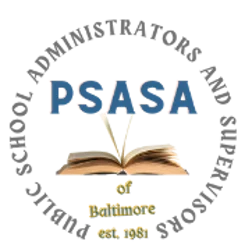Most federal K–12 education programs will see an approximate increase of 3% from last year as House and Senate lawmakers clinched a final deal on FY2020 appropriations that President Trump signed into law, thus averting another federal government shutdown.
Beyond agreeing on the budget, the final deal includes language that will raise the purchase age for all tobacco products to 21, a major step in the right direction on an important AFSA legislative priority.
“AFSA has taken a strong stand against youth e-cigarette usage and we endorse wholeheartedly the bill's inclusion of language to raise the minimum age to 21 for tobacco product purchases,” said AFSA President Ernest Logan. “However, we believe that more needs to be done on this subject, especially in terms of banning flavored e-cigarettes. We are hopeful Congress will get to this and other issues next year, and we look forward to working closely with them."
According to AFSA’s legislative team, K–12 education programs did not fare as well as they would have had the Democratic House’s more aspirational version of Labor- HHS-Education appropriations legislation become law.
"This bill is not a home run for school leaders, but is far more than a single,” Logan said. “We were excited that Title II-A, which allows states to set aside up to 3 percent of their allocations for principal professional development, received its first increase in more than 10 years. While a $76 million increase is far less than the House approved this past summer, the fact that Title II-A received an increase that is—percentage-wise—larger than any other major K–12 program shows that Congress values educators and school leaders specifically.”
While Title I and IDEA saw the largest numerical gains, receiving boosts of $450 million and $400 million respectively, Title II-A, which supports educator professional development, received the largest percentage increase of any of the major programs from last year's funding levels—3.7%—with its $76 million increase. Interestingly, charter schools, a major administration priority, received no funding increase.
Beyond the numbers, Title II-A’s increase will resonate more because it was a key AFSA priority and represents the first funding uptick in that program for more than a decade. Title IV-A, the $1.17 billion flexible block grant program, saw a slight increase in the bill, gaining another $40 million in FY2020.
The biggest winner, though, may be the Education, Innovation and Research (EIR) grant program, which will receive nearly double its current appropriation. The vast majority of EIR’s new—and much of the old—money will go to social emotional learning programs, a priority of House Appropriations Subcommittee Chair Rosa DeLauro (D-Conn.), and STEM programs, another priority of the administration.
AFSA was pleased that the Title IV-A flexible block grant program, which allows districts to provide mental health services and programs, received an additional $40 million from last year. This increase plus money for gun violence research represent progress in protecting our students in school.
Despite boosting most education programs from early ed through adult education, appropriators still found money for higher education investments in the final deal. Nearly every single higher ed program—from TRIO and GEAR UP to historically black colleges and universities and supports for minority-serving institutions—received modest increases in the bill.
Similar to the 2% to 3% K–12 raises across the board, the maximum Pell Grant award is increased by $150, from $6,195 to $6,345 for the 2020–21 school year. In addition to the Pell Grant increase, other higher ed programs received more funding, including campus-based aid programs like federal work study (+$50 million) and federal supplemental educational opportunity grants (FSEOG) (+$25 million).
Additionally, institutional aid programs that support HBCUs, Hispanic-serving institutions and tribal colleges received whopping 15% increases, providing millions more across the board to help minority-serving institutions.
Unfortunately, one program took a big hit: The Temporary Expanded Public Service Loan Forgiveness (TEPSLF) program, which provided funds to the department to help fix public service loan forgiveness, received just $50 million for FY2020, $300 million less than it received last year.
While the report language accompanying the bill doesn’t provide details for the decrease, it likely was reduced this year because the department has still, after two years of receiving this extra funding, processed fewer than 1% of all PSLF claims using these funds. While the decrease to TEPSLF isn’t great news, the funding bill does include strong language around protecting student borrowers.
Among the several pages of report language, the bill includes provisions aimed at holding institutions more accountable for high-quality outcomes, reducing misinformation provided to borrowers, and improving loan servicing while NextGen is being rolled out over the next few years.
The bill also injects additional life into open textbooks by including $10 million for an Open Textbook Pilot that will fund a new competition next year. According to the bill’s report language: “Funding should be used to create new open textbooks and expand the use of open textbooks in courses that are part of a degree granting program, and particularly those with high enrollments.”
